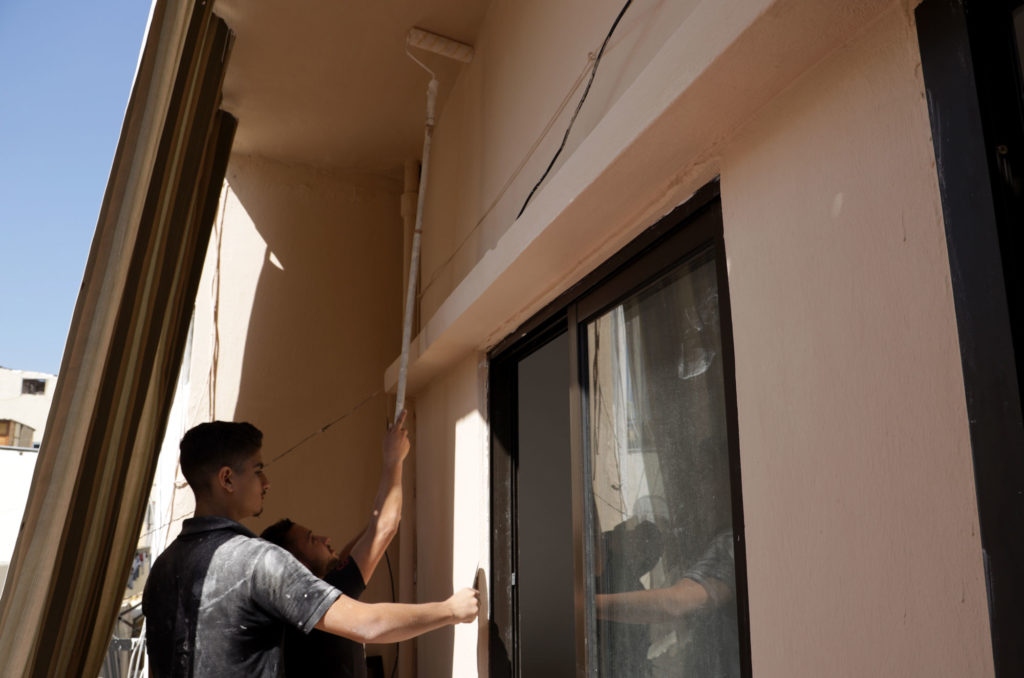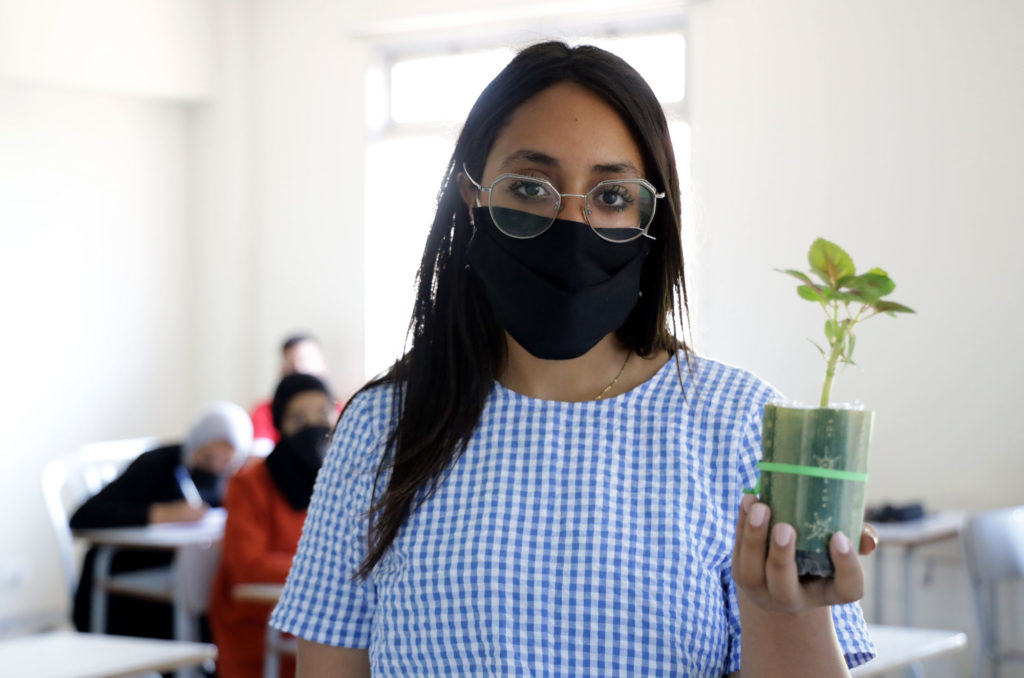Dec, 2017
Throughout the Middle East, youth unemployment rates are sky-high. It’s even worse for refugees, who often face restrictions on what kinds of jobs they can access.
Below, meet some of the top graduates from various job-skills courses in Lebanon. From Syrians to Palestinians to Lebanese, designers to car mechanics, they come from vastly different backgrounds but share similar goals: supporting their families, helping their communities, and launching their careers.
Mashhour Dreams of Opening Mobile Shop
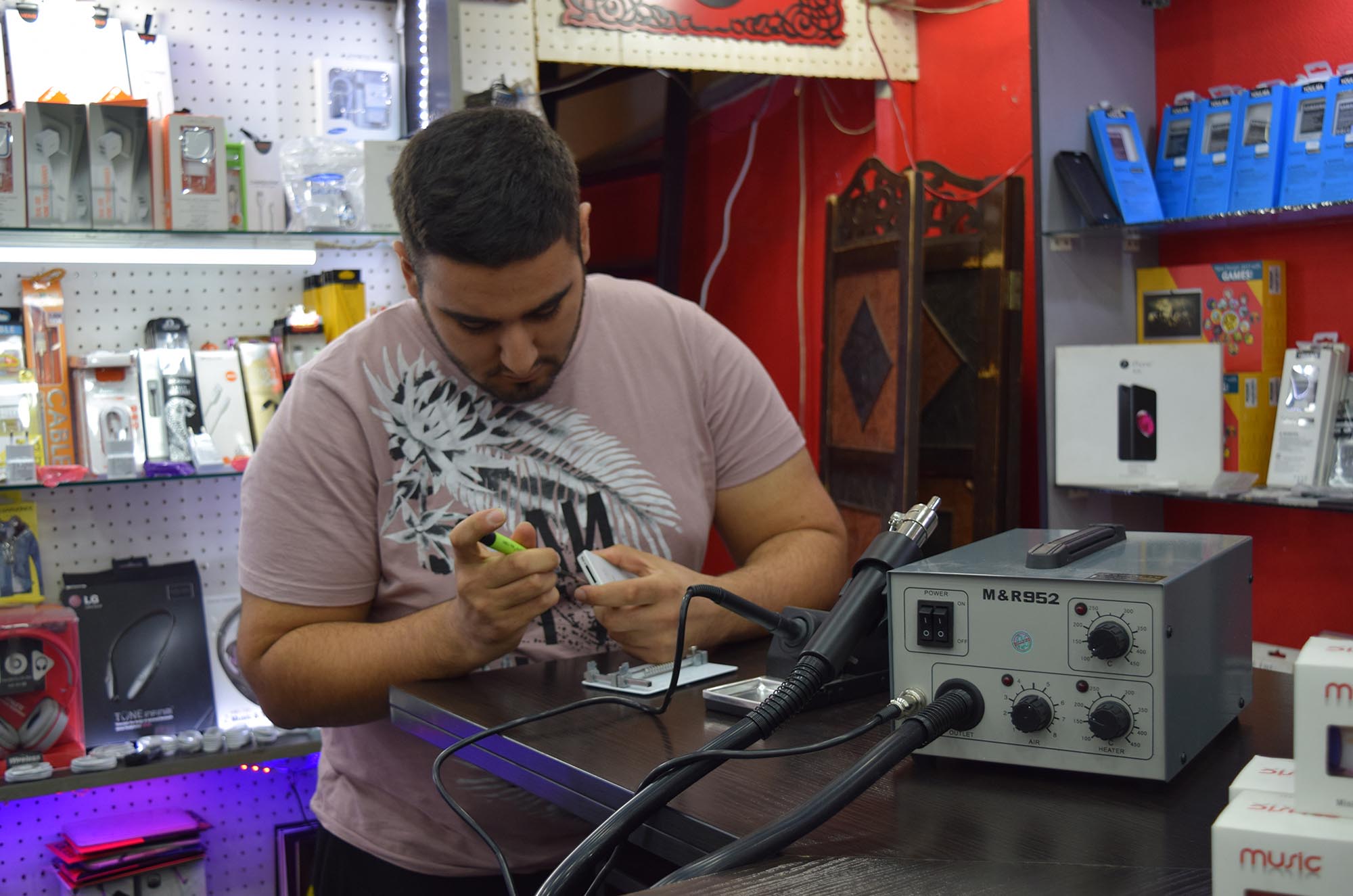



“I really like what I do and I plan to to open my own shop one day.”
Mashhour is a young man from Akkar, Lebanon. As an orphan, he dropped out of school in the seventh grade to start working to support himself. “I worked for three or four years as an assistant in a local barbershop,” says Mashhour, who is now 19.
When he learned about Anera’s vocational courses in mobile phone maintenance, he was eager to enroll. Twenty young people joined him in the course, which was held in Tripoli and included both refugee and host community youth. The course taught Mashhour and his classmates about the software and hardware of mobile phones, as well as maintenance skills.
Since graduation, most students have started apprenticeships with local shops. Mashhour graduated at the top of his class, so Anera provided him with a graduation kit including essential equipment for his new career. Now he’s using the tools from the kit in his new job at a mobile shop in Tripoli.
“The kit helps me practice the skills I learned in class,” says Mashhour. Now, equipped with his tools in his new job at the mobile shop, he works shorter shifts and makes almost double the wages. “I really like what I do and I plan to to open my own shop one day.”
Two Friends Share Career Paths
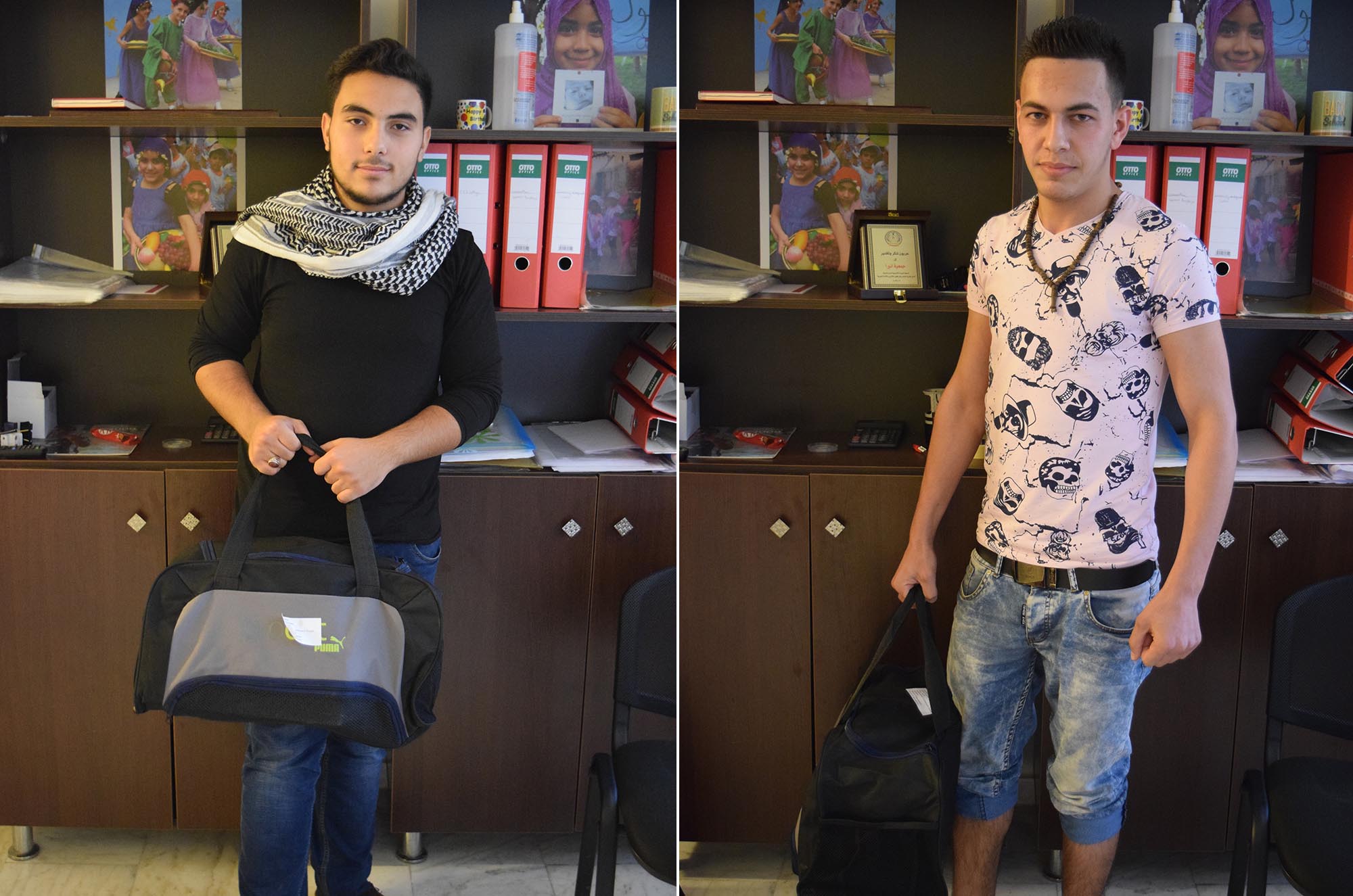



“For practice, I will offer my cousins and neighbors free haircuts over the weekend.”
Ahmad and Abdel Rahman come from different backgrounds—Ahmad is Lebanese, while Abdel Rahman is a Palestinian refugee. Yet the two boys have formed a strong friendship since they met in a car maintenance workshop in Jabal El Beddawi five years ago. It turned out they had a lot in common, starting with their need to financially support their families. Now in their late teens, they met up again to take a barber certification course in Tripoli.
“Throughout the years, I’ve done odd jobs like mechanics and painting,” says Abdel Rahman. “I wanted to learn barber skills for years, but the courses I found cost $100 a month, which I could not afford.” Abdel Rahman is one of over 500,000 Palestinian refugees who’ve lived in Lebanon for decades. And like many, he faces a highly restricted labor market in which it’s very difficult to find a well-paying job.
His friend Ahmad had been working as an assistant in a car maintenance workshop, and then moved on to a job at a barber shop. But until enrolling in the barber course with Abdel Rahman, neither had the chance to learn professional skills. Both ended up graduating at the top of their class.
The course was offered by Anera in partnership with the Harb Academy. After graduation, both received certificates from the Ministry of Education and Higher Education as well as graduation kits packed with high quality barber tools. Now they each have apprenticeships in two different barber shops in the Beddawi area.
“With these tools, I can sharpen the skills that I’ve learned,” says Abdel Rahman. “For practice, I will offer my cousins and neighbors free haircuts over the weekend.”
Palestinian Teens Win Prestigious Design Competition in Lebanon
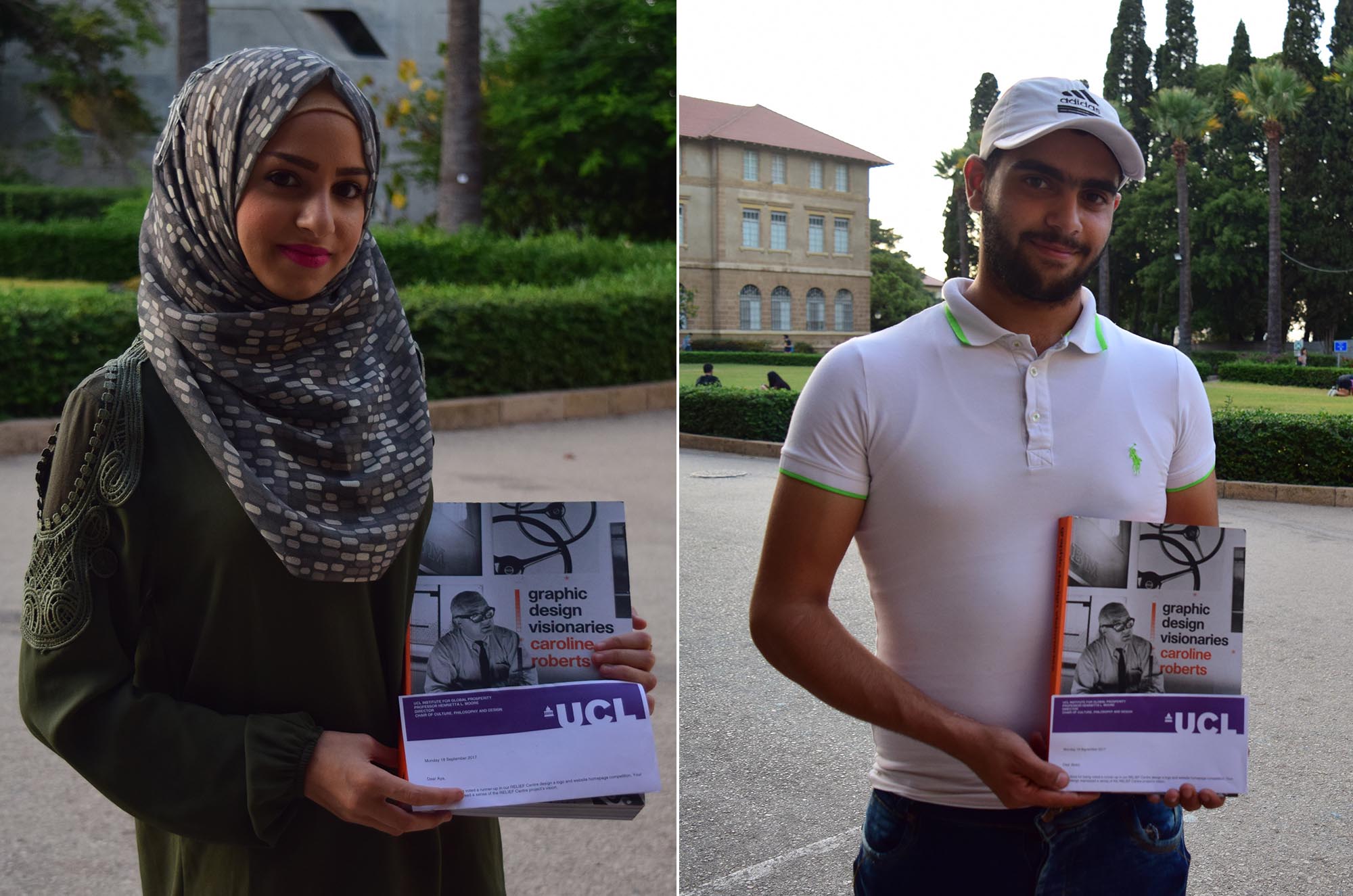



“Winning in this competition boosted my self-confidence and encouraged me to work more to improve my design skills."
Also in Tripoli, Abed and Aya took a graphic design course offered by Anera’s local partner, Nasamat Shabab. Because of their excellent performance in class, the two received graduation kits and entered a prestigious competition to design a logo and website for the newly-launched Relief Centre by the Institute for Global Prosperity at University College London. Despite Abed and Aya’s young ages of 19 and 17, respectively, they were selected as runners-up in a field including graphic design professionals and university graduates. For them, it was particularly meaningful because they had both dropped out of school.
“Winning in this competition boosted my self-confidence and encouraged me to work more to improve my design skills,” says Abed, who had never had the chance to go back to school after dropping out in eighth grade.
“It’s due to the hard work and passion of Abed and Aya that they won today,” explains their graphic design instructor, Qamar Jabakhanji. “Usually, students need three years of experience to be able to produce high-quality designs.”
Abed and Aya were honored at the Relief Centre’s launch event, which took place at the American University of Beirut. After hearing of this achievement, the Embassy of Palestine in Lebanon contacted Nasamat Ashabab to employ students from the graphic design course as collaborating freelance designers.
Fisherman’s Children Learn Father’s Trade
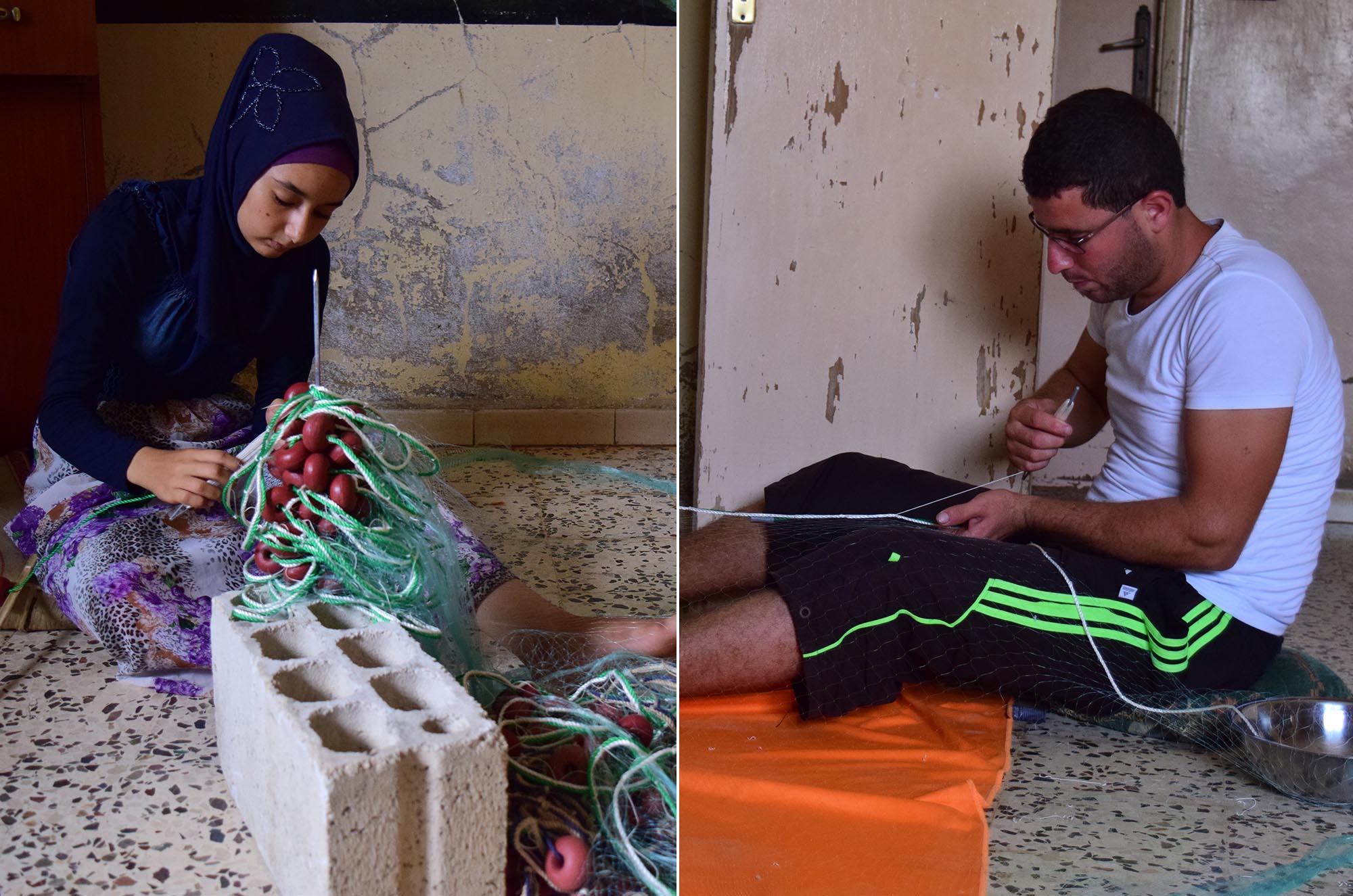



“Usually, a 100 ft fishnet can be sold for $86. Of that, $20 is our net profit, which we use to support our family. It’s also a really flexible job, so I can sew the nets at home.”
Elissar and Bilal are siblings from the village of Tal Hayat in the Akkar province of Lebanon. Elissar dropped out of school in eighth grade, and Bilal dropped out in ninth grade after their father died. As the eldest son, Bilal needed to work to support the family.
Their father, a fisherman, fished off the coast of Tal Hayat and took his catch to the bigger town of Aabdeh to sell in the market. When Bilal dropped out of school, he envisioned following in his father’s footsteps as a fisherman, but his mother was worried about him going out to sea all alone. So instead, he took odd jobs in construction. “I didn’t have any skills,” he says. “But we needed the money badly because we’re a family of six.”
When Anera came to town to offer courses as part of the job skills training program, one of the available subjects was fishnet weaving. Both siblings took an interest in the subject and enrolled. Now Elissar takes the lead in weaving, sewing fishnets for her brother as well as other fisherman. “Usually, a 100 ft fishnet can be sold for $86. Of that, $20 is our net profit, which we use to support our family. It’s also a really flexible job, so I can sew the nets at home.”
As one of the top students in the course, Elissar received a graduation kit including basic materials for making fishnets. Now she has a leg up in acquiring supplies to generate income for her family. And now Bilal can become a fisherman like his father.

